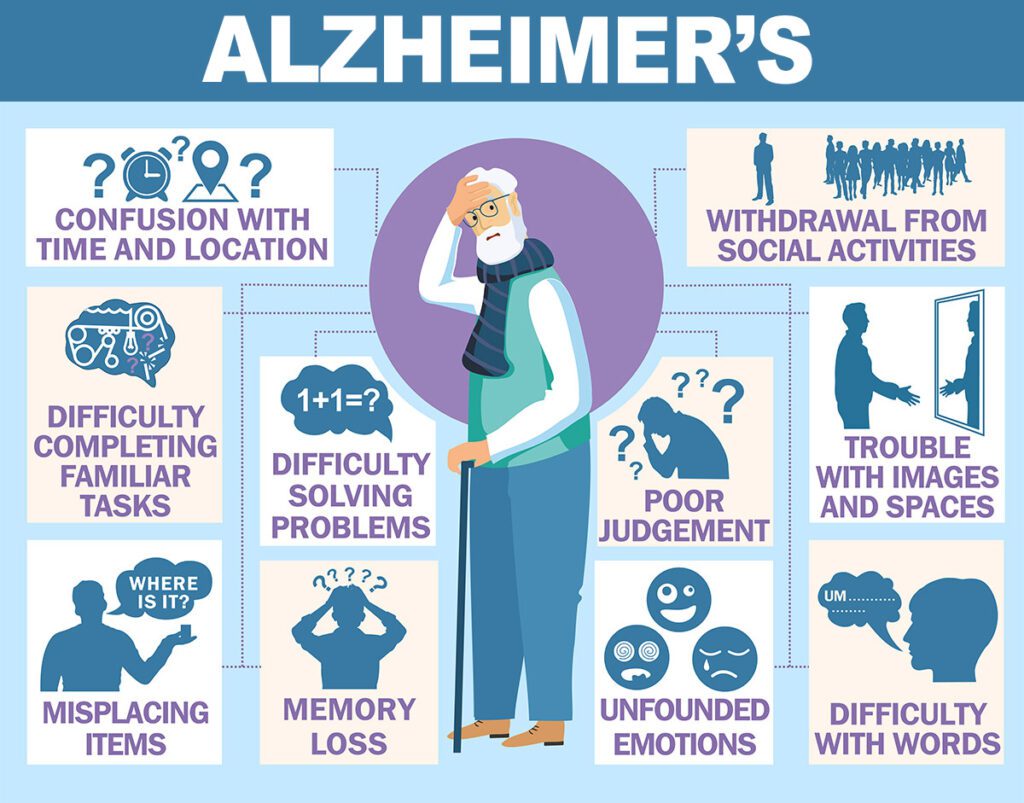
Alzheimer’s is a disease that destroys memory and other mental functions. This disease can progress over time. Although there is no cure for Alzheimer’s disease, genetic testing can show if a person carries the gene. Genetic testing is a medical test that identifies changes in chromosomes, genes, and proteins. The results of this test can confirm or eliminate suspected genetic conditions and the chance of developing any genetic disorder. Different genes are considered since there are two types of Alzheimer’s disease: late onset and early onset.
In late onset Alzheimer’s disease, the symptoms become apparent to an individual in the mid-sixties and later. There is not a specific gene that has been found to directly cause late onset, but the genetic variant Apolipoprotein E (APOE) does increase an individual’s risk for developing it. However, it is not definitive since some people with an APOE never get Alzheimer’s disease and there are people with Alzheimer’s disease who do not have any APOE. Having this genetic variant means that an individual might develop Alzheimer’s disease, but nothing is one hundred percent sure.
Early onset Alzheimer’s disease is rare. Only ten percent of people with Alzheimer’s disease have early onset. The symptoms become apparent to individuals between age 30 and their mid-60s. There are three gene mutations that are linked to early onset Alzheimer’s: Amyloid precursor protein (APP) on chromosome 21, Presenilin 1 on chromosome 14, and Presenilin 2 on chromosome 1. These mutations create abnormal proteins that are associated with the disease. If an individual’s parent carries one of the three genes, they have a 50/50 chance of inheriting that mutation. If the mutation is inherited there is a strong probability that they will develop early onset Alzheimer’s disease.
Since early onset can happen at such a young age, genetic testing can be very beneficial especially if someone within the family has had Alzheimer’s disease. Finding out that you have one of the three mutations will allow you to better prepare yourself and your family for what is ahead. Although there is currently no cure for Alzheimer’s disease, finding out before the symptoms start will allow you to learn and become more involved. There are different organizations that provide resources, learning opportunities, and even Alzheimer’s disease research opportunities.
WellPath Partners is your senior resource referral guide. Follow us on ALL social media platforms and join us weekly for more content and public health discussions.
By: Cindy Birrueta
Placement Specialist at WellPath Partners
B.S. in Healthcare Administration at California State University, Long Beach
